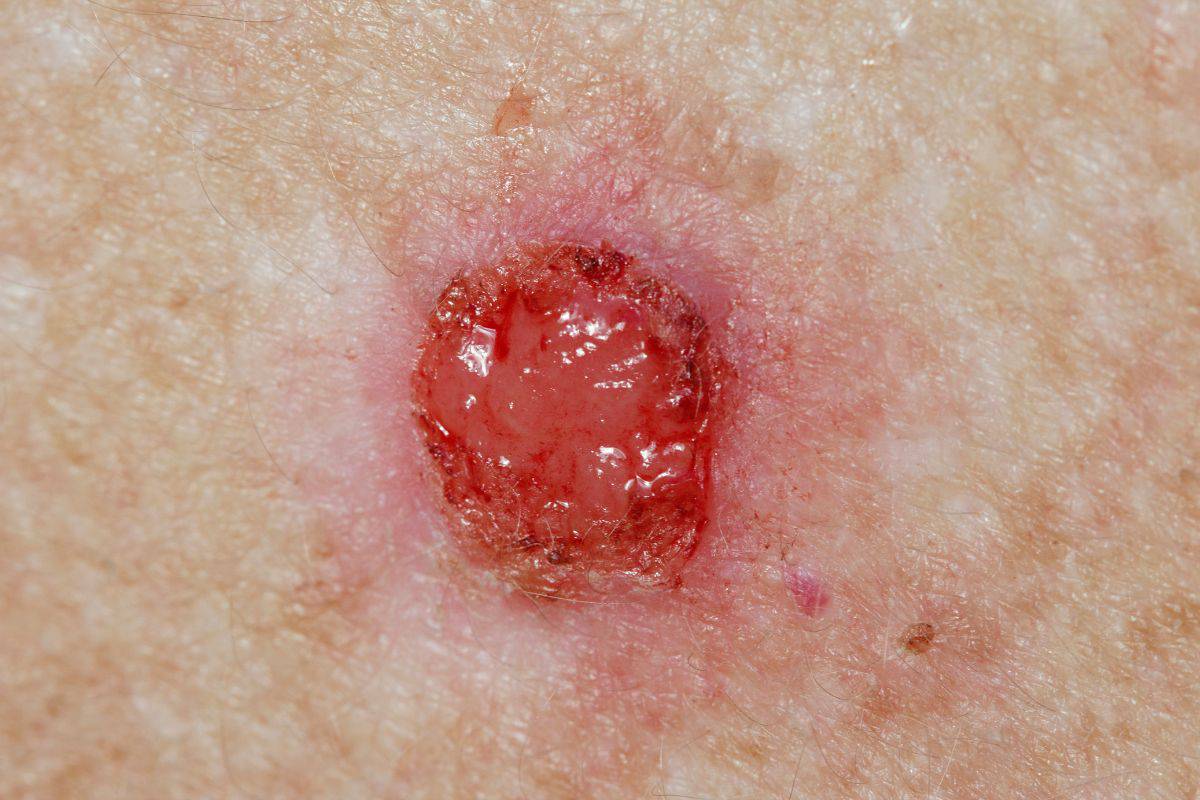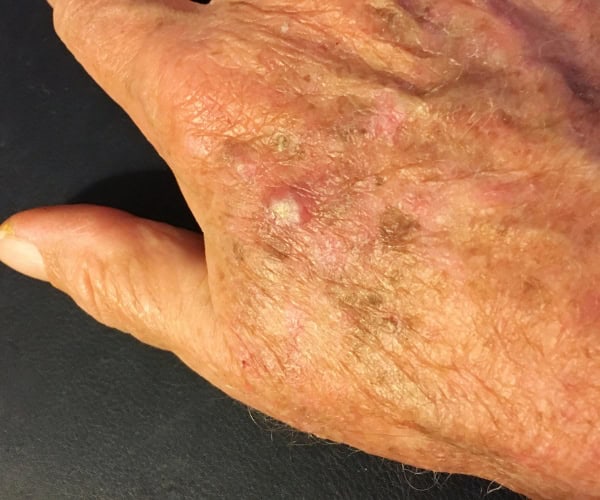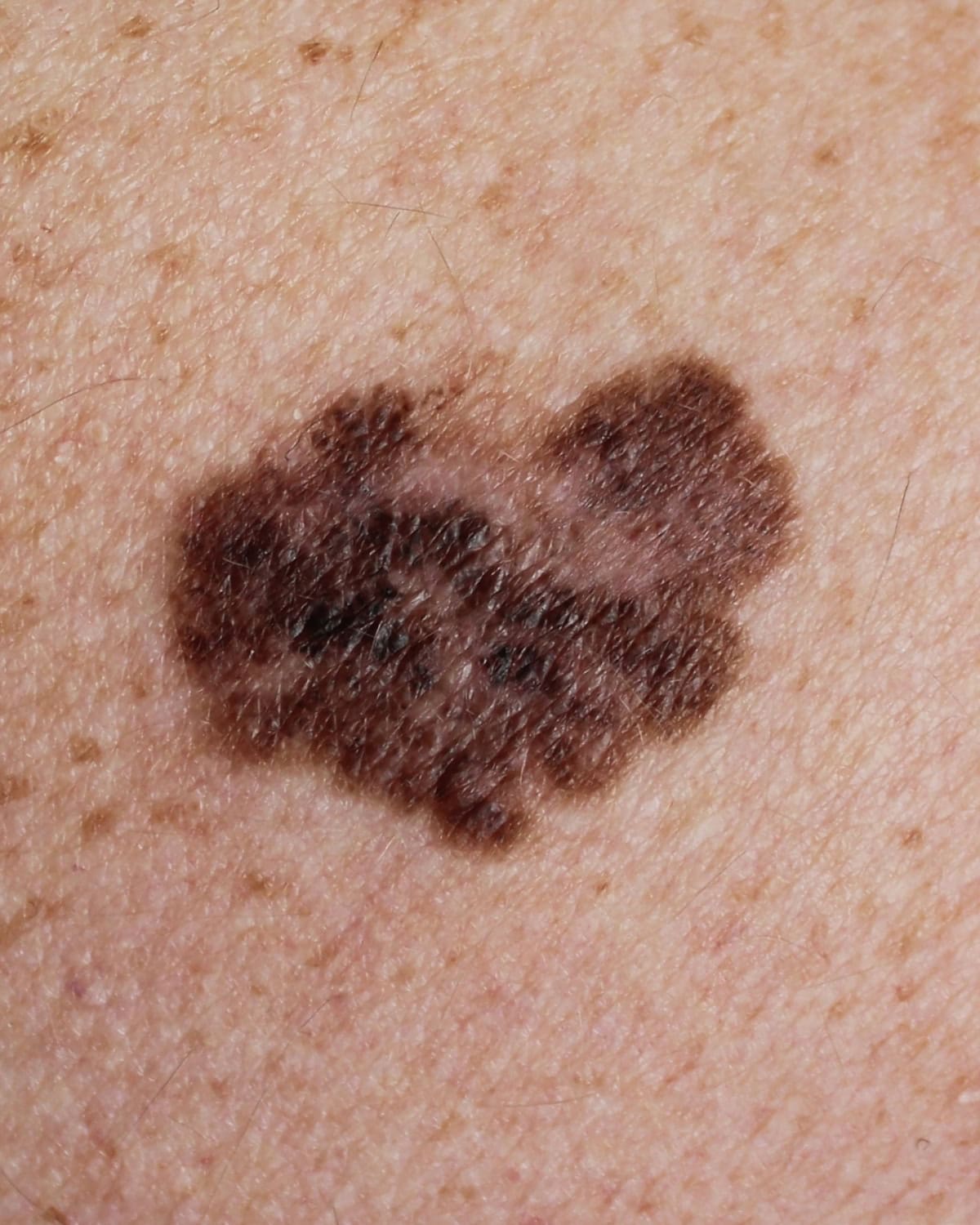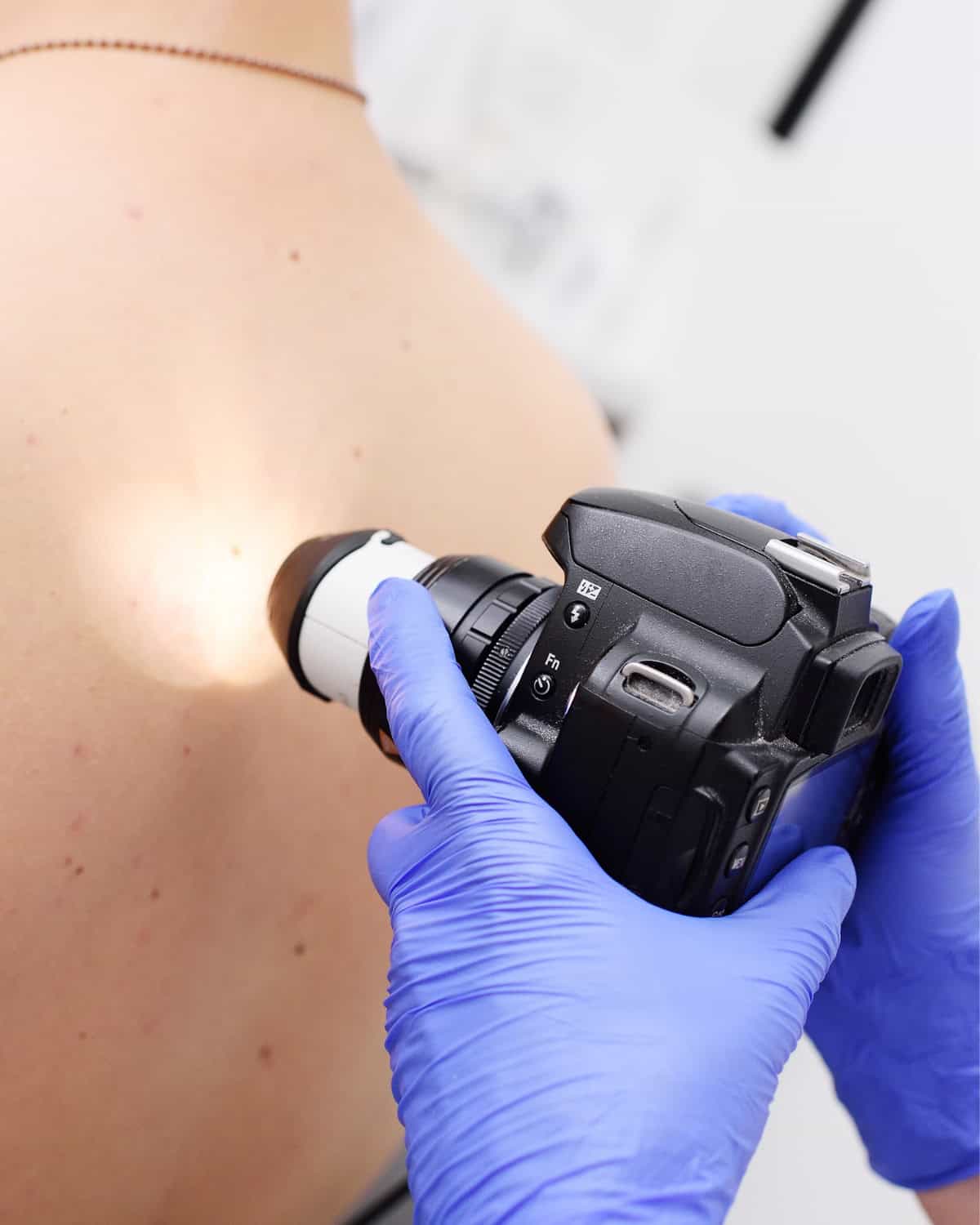Associated Dermatologists
Skin Cancer Treatment In Birmingham, AL
Skin Cancer Treatment In Trussville, AL
Each year, over one million Americans are diagnosed with skin cancer, making it the most common cancer.
If you have light or fair skin that burns easily, your risk of developing skin cancer increases with repeated sun exposure. However, people with darker skin tones are also at risk. Skin cancer can affect anyone, regardless of skin color, so protecting your skin is essential for everyone.
Early detection is key. And that’s why our team of board-certified professionals at Associated Dermatologists is well trained to constantly be on the lookout for early signs of skin cancers, including malignant melanoma, basal cell carcinoma, squamous cell carcinoma and more.
We’ll make sure you’re equipped to notice the changes in your skin and what causes it, as well as when you should turn to a professional for help.
Skin cancer takes hundreds and even thousands of lives each year around the globe. And we’re ready to put a stop to it with the help of proper and professional preventive care.
Let the experts at Associated Dermatologists help you protect and prevent against skin cancer.
Give us a call TODAY and let’s fight skin cancer together.

Understanding Skin Cancer: Types and Risks
Basal Cell Carcinoma


Squamous Cell Carcinoma
Malignant Melanoma
The most deadly of all skin cancers is malignant melanoma. It is estimated that 8,000 Americans die from this deadly cancer each year, and over 108,000 Americans will develop this type of skin cancer annually.
Melanoma develops in the skin’s melanocytes, which are the cells responsible for producing melanin—the pigment that gives skin its color and contributes to tanning. Melanin serves as the skin’s natural protective pigment. Because melanoma cells continue to produce melanin, the cancer can present in a wide range of colors, including shades of tan, brown, black, and occasionally red or white. Early detection is critical, as melanoma has the potential to spread. It may appear suddenly in or around existing moles or freckles, emphasizing the importance of vigilant monitoring.
It is essential to know the location and size of moles and freckles on your body to detect the sometimes subtle changes in your skin’s color and texture that may represent growing cancer. Any change in the appearance of a mole or freckle should be promptly examined by a dermatologist.
Melanoma is treatable if caught early, and excessive sun exposure, especially sunburn, is the most preventable cause. Those with lighter skin, numerous or atypical moles, or a family history are at higher risk, but darker skin tones are not exempt. Melanoma can still develop on the palms, soles, under nails, in the mouth, or on genitalia. Knowing skin cancer warning signs is crucial: watch for changes in moles, spreading, oozing, bleeding, scaling, new bumps, or changes in sensation like itching or pain. Early detection is key to prompt treatment.
All skin changes should be brought to the attention of your dermatologist.


Specialized Care for Various Skin Cancers
We aim to treat the cancer, help you maintain healthy skin, and prevent recurrence.
Treatment options for skin cancer may include surgery, radiation therapy, chemotherapy, or targeted therapy.
Our team will work closely with you to discuss the best action based on your needs and preferences.
We understand that a cancer diagnosis can be overwhelming, so we strive to provide support and education throughout your journey.
Clinical Expertise in Skin Cancer Diagnosis and Treatment
Our clinicians possess extensive expertise in diagnosing and treating skin cancer. Through thorough clinical assessments and advanced diagnostic tools, we ensure accurate diagnoses and develop tailored treatment strategies for each patient. Our team is also trained in the latest surgical techniques and radiation therapies, allowing us to provide comprehensive care for all types of skin cancer.
Dedicated Support for Skin Cancer Patients in Alabama
Navigating a skin cancer diagnosis can be overwhelming, which is why we offer dedicated support and guidance to our patients throughout their treatment journey. Our compassionate team is here to provide information, answer questions, offer emotional support, and strive for a cure every step of the way.
State-of-the-Art Facilities for Skin Cancer Treatment
At Associated Dermatologist, we are proud to provide state-of-the-art facilities with the latest skin cancer treatment technology. From our advanced surgical suites to cutting-edge therapy options, we prioritize patient safety, comfort, and satisfaction. Our skilled dermatologists are experts in performing procedures such as Mohs surgery, cryotherapy, and photodynamic therapy to treat skin cancer effectively.
